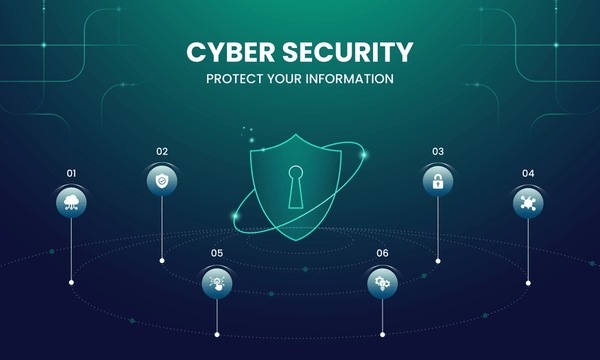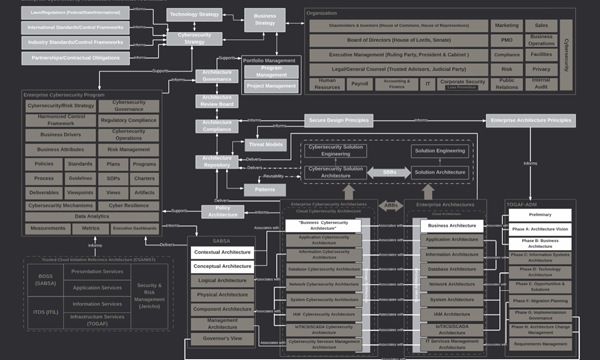
In the ever-evolving landscape of the manufacturing industry, cybersecurity has become a critical concern. Did you know that cyber attacks on manufacturing companies surged by over 300% in recent years? Are you aware that these breaches can lead to significant financial losses, operational disruptions, and damage to your brand's reputation? As manufacturing organizations increasingly integrate advanced technologies such as IoT and OT into their operations, the need for robust cybersecurity compliance frameworks has never been more pressing.
Imagine the consequences of a ransomware attack halting your production line for days or even weeks. Consider the impact of intellectual property theft, where years of research and development could be stolen in a matter of seconds. These are not just hypothetical scenarios; they are real threats that manufacturing companies face daily. The cost of cyber attacks in the manufacturing sector is not only measured in financial terms but also the potential loss of competitive advantage and erosion of customer trust.
Compliance with cybersecurity standards and regulations provides a structured approach to managing these risks. It helps ensure that manufacturing companies are not only protecting their data and operations but also meeting legal and contractual obligations. This comprehensive guide will walk you through the major cybersecurity compliance frameworks relevant to the manufacturing industry, highlighting their descriptions, relevance, and specific requirements for various sectors such as aerospace, food and beverage, retail, and more.
Major Cybersecurity Compliance Frameworks for the Manufacturing Industry
1. ISO/IEC 27001
Description: An international standard for managing information security.
Relevance: Manufacturing companies handle a significant amount of sensitive data, including intellectual property, supply chain information, and customer data. ISO/IEC 27001 helps establish a robust information security management system (ISMS) to protect this data from breaches and unauthorized access.
Requirements:
-
Establish an information security management system (ISMS).
-
Conduct regular risk assessments and implement appropriate controls.
-
Perform ongoing audits to ensure compliance and improvement.
2. NIST Cybersecurity Framework (CSF)
Description: A voluntary framework developed by the National Institute of Standards and Technology.
Relevance: This framework is widely applicable across various industries, including manufacturing. It provides a comprehensive approach to managing and reducing cybersecurity risks through its core functions: Identify, Protect, Detect, Respond, and Recover.
Requirements:
-
Identify critical assets and potential cyber threats.
-
Implement protective measures.
-
Develop detection and response strategies.
3. NIST SP 800-53
Description: Provides a catalogue of security controls for federal information systems, also applicable to private industries.
Relevance: Although initially designed for federal information systems, NIST SP 800-53 applies to private industries, including manufacturing. It provides a thorough catalogue of security controls that can be tailored to protect manufacturing systems and data.
Requirements:
-
Implement a set of controls across various domains, including access control and incident response.
-
Regularly update and adapt controls based on emerging threats.
4. General Data Protection Regulation (GDPR)
Description: A regulation in the European Union for data protection and privacy.
Relevance: For manufacturing companies operating in or with partners in the European Union, GDPR compliance is essential. This regulation ensures that personal data is processed securely and that privacy rights are upheld.
Requirements:
-
Ensure lawful and transparent data processing.
-
Implement measures to protect personal data from breaches.
-
Provide data subjects with rights such as access and deletion of their data.
5. Cybersecurity Maturity Model Certification (CMMC)
Description: A unified standard for implementing cybersecurity across the defence industrial base.
Relevance: Manufacturing companies that are part of the defence supply chain or that supply products and services to the U.S. Department of Defense (DoD) must comply with CMMC. This certification ensures that manufacturers have robust cybersecurity practices in place.
Requirements:
-
Meet specific cybersecurity practices and processes at various maturity levels.
-
Regularly assess and improve cybersecurity posture.
6. Sarbanes-Oxley Act (SOX)
Description: A U.S. law that aims to protect investors by improving the accuracy of corporate disclosures.
Relevance: Publicly traded manufacturing companies must comply with SOX to ensure the accuracy and integrity of their financial reporting. This includes implementing security measures to protect the information systems handling financial data..
Requirements:
-
Implement internal controls to ensure the integrity of financial reporting.
-
Secure information systems handling financial data.
7. Health Insurance Portability and Accountability Act (HIPAA)
Description: U.S. law provides data privacy and security provisions for safeguarding medical information.
Relevance: Manufacturers involved in producing medical devices or handling healthcare-related data must comply with HIPAA. This ensures that health information is securely managed and protected.
Requirements:
-
Implement physical, administrative, and technical safeguards for health information.
-
Ensure confidentiality and integrity of electronic protected health information (ePHI).
8. International Traffic in Arms Regulations (ITAR)
Description: U.S. regulations control the export and import of defence-related articles and services.
Relevance: Manufacturing companies involved in the production of defence-related articles and services must comply with ITAR to prevent unauthorized access and export of sensitive defence-related information.
Requirements:
-
Ensure that defense-related data is not disclosed to unauthorized individuals.
-
Implement stringent security measures to protect technical data.
9. Payment Card Industry Data Security Standard (PCI DSS)
Description: Security standards are designed to ensure that companies processing credit card information maintain a secure environment.
Relevance: Manufacturing companies that process credit card payments need to comply with PCI DSS to protect cardholder data and prevent data breaches.
Requirements:
-
Secure network and systems handling cardholder data.
-
Implement strong access control measures.
-
Regularly monitor and test networks for vulnerabilities.
10. Center for Internet Security (CIS) Controls
Description: A set of best practices for securing IT systems and data against cyber attacks.
Relevance: The CIS Controls provide actionable steps to improve cybersecurity posture and are highly applicable to the manufacturing industry. They help manufacturers protect critical systems and data against a wide range of cyber threats.
Requirements:
-
Implement specific controls across domains like asset management and incident response.
-
Continuously update and refine security practices based on new threats.
Conclusion
In the dynamic environment of the manufacturing industry, cybersecurity compliance is not just a regulatory requirement but a strategic necessity. By adhering to the aforementioned compliance frameworks, manufacturing companies can significantly bolster their security measures, protecting sensitive data and ensuring operational continuity.
Don't wait until a cyber attack forces you to react. Take proactive steps to enhance your cybersecurity strategy today. Assess your current security posture, identify gaps, and implement the necessary compliance measures to safeguard your manufacturing operations. Engage with cybersecurity experts to develop a tailored plan that addresses your specific needs and ensures your compliance with relevant standards and regulations.
By prioritizing cybersecurity compliance, you can protect your business, maintain customer trust, and stay competitive in the rapidly evolving manufacturing industry.
Comments
No Comments Found.
Search Here



